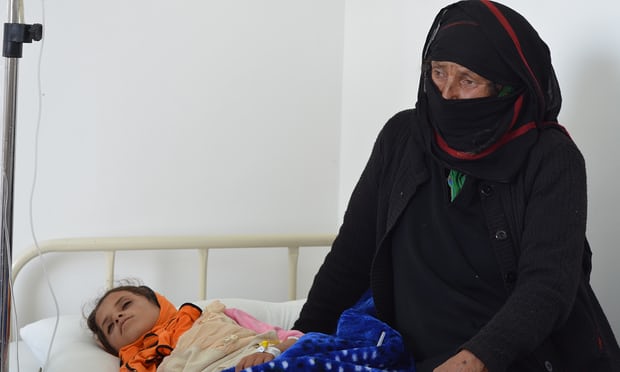By Abdulhakim Al-Ansi
In Yemen, 22 million are in need and diptheria is spreading. Convincing people tomorrow will be better has become a hard job
2017 was not a good year for my home country, Yemen. In January, after working and studying abroad for four years, I arrived back home. Of course I knew a war had been raging in my country but I was still completely shocked by what I saw. The airport building was destroyed, burned planes lay all around, and tanks roamed the airstrip.
On the drive to Sana’a, I was horrified by the damaged hotels, houses, schools and roads. It was the first time I’d travelled from Aden to Sana’a without being able to go through my home city Taiz. The city where I was born and grew up in had been living through an unmerciful conflict.
But what I saw on that 12-hour journey was nothing compared to what I’ve experienced since starting to work for Care. I came back to Yemen to help my people, and I see the miserable impact this war has had on each and every Yemeni. The ugly truth is that we rarely see it in the media.
In January 2017, the situation in Yemen was already critical. Around 18 million people were in need of humanitarian assistance – more than half the entire population. Huge numbers of families did not have access to clean water; garbage covered village streets.
For several months, public sector employees had not been paid. At the end of April, a deadly outbreak of cholera break began to spread swiftly. More than 5,000 new cases were reported on a daily basis. Twenty two of Yemen’s 23 governorates were affected.
Visiting hospitals, I saw patients laying in the corridors. Old and young men, women, boys and girls. They were so weak they could not even say a word. I felt awful for those patients. But I also felt angry about this war, which was causing such incredible pain.
Young Eman was the first cholera patient I met. She couldn’t even open her eyes. Her grandma sat next to her, tears running down her face. She was asking the doctor whether her little girl would live.
Adam was brought to the hospital very late – his parents kept him at home for 24 hours trying to cure him with home remedies. The four-year-old boy was unconscious, waiting for the overwhelmed doctors to save his life. My heart was bleeding that I could do nothing for him, apart from share his story in the hope the world would start paying attention.
Mother Karima helplessly had to watch her son die because she did not have the money to take him to hospital. Within six hours of severe diarrhoea he passed away in the one room his family calls home.
This war has been going on for almost three years. These stories are just a few among so many. Even for myself and my colleagues, the war has made our lives difficult. We queue for hours to get petrol, we often have no electricity and heating. Right now, at minus five degrees, the heaters in our houses are not working. Many of us struggle to feed our families, as prices for food and medications grow higher than ever.





















